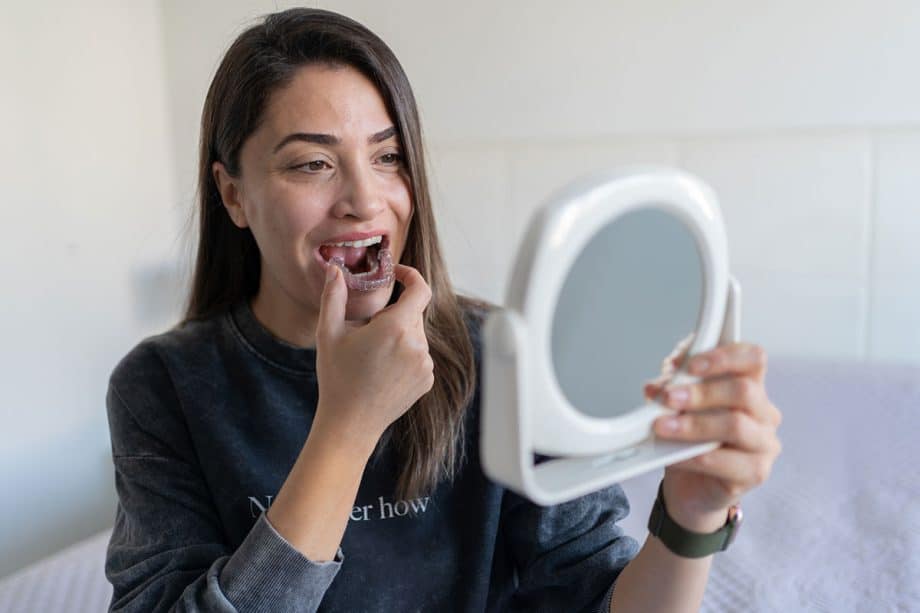Teeth grinding or bruxism may seem harmless but can cause significant damage. Patients who habitually grind their teeth may experience jaw soreness, muscle tension, and damage to the enamel and existing restorations. They may also develop other related symptoms, including TMJ.
Since teeth grinding is generally an unconscious habit, stopping can be challenging. This blog will share strategies to reduce teeth grinding and how your oral surgeon can help you overcome it.
Damage Teeth Grinding Can Cause
- Broken crowns, bridges, or implants
- Excessive enamel wear
- Altered dental bite
- Tooth sensitivity
- Headaches
- Jaw problems
Tips to Reduce Teeth Grinding
Jaw Positioning Techniques
Your oral surgeon can teach you to hold your teeth and jaw while resting. Keeping your jaw in the correct position will make you less likely to grind your teeth.
Oral Appliance Therapy
Your oral surgeon or dentist can prescribe a stabilization splint for nighttime wear. The splint fits like a dental retainer and keeps the jaws relaxed, preventing grinding.
Reduce Stress
Stress is a trigger for many patients who grind their teeth. Clenching the teeth or jaws is a common problem for people experiencing tension. As much as possible, try to reduce stress in your daily life. Try activities like yoga, meditation, and biofeedback to feel less stressed.
Medication or Therapy for Anxiety and Depression
Many patients with bruxism have mental health conditions like anxiety and depression. Receiving treatment for these conditions may also help reduce teeth grinding.
Avoid Alcohol and Caffeine
Drinking alcohol may make it more likely that you will grind your teeth at night. Caffeinated beverages may also have a similar impact on teeth grinding.
Diet Changes
If your jaw muscles feel sore, switch to a softer diet. Until the muscles relax, avoid hard, chewy, sticky, and crunchy foods.
The Connection Between Teeth Grinding and TMJ Disorder
The correlation between these two conditions is unclear, but many people who have bruxism also have TMJ syndrome. Stress is a common trigger for both conditions; the symptoms often overlap. To determine whether you have TMJ, bruxism, or both, consult your dentist or oral surgeon for a diagnosis.
Frequently Asked Questions About Teeth Grinding
Is bruxism the same thing as TMJ?
Both TMJ and bruxism involve the jaw, but they are different medical conditions. Involuntary gnashing, clenching, or grinding of the teeth happens in patients with bruxism. A diagnosis of TMJ means that the jaw joints are malfunctioning or misaligned. Patients can suffer from both TMJ and bruxism at the same time.
Why is it essential to treat teeth grinding?
Teeth grinding can damage the tooth enamel, making tooth decay more likely. It can also contribute to chipped and broken teeth and cause gum recession.
Call Upper West Side Oral & Maxillofacial Surgery
If you grind your teeth, please call our Upper West Side, NYC, office at 212-466-6984. We would be glad to schedule a consultation with Dr. Park to discuss your problem and work toward finding a solution.


